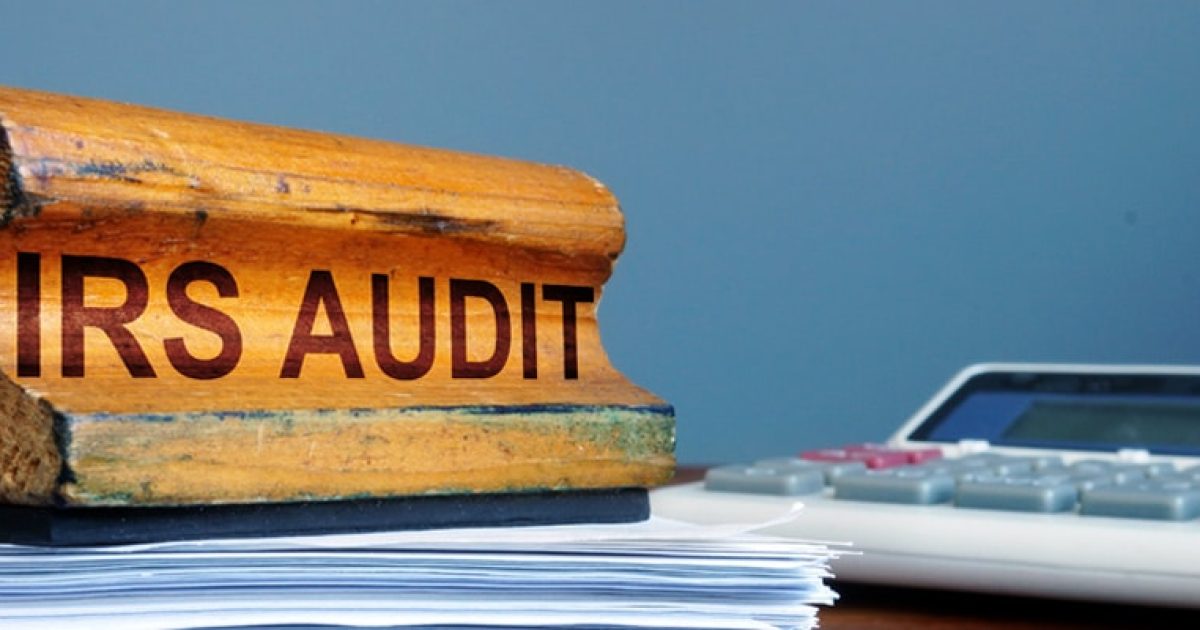While the chances of a tax audit are slim, they still happen. If you are expecting an audit or just want to be prepared in case you do get audited, this list should help you. It will list the different things you can do to prepare for an audit as well as the details on how to do each one.
In the case of an audit, it is very important to be as prepared as you can be. It will help alleviate any stress or anxiety you may be feeling. Preparing what the IRS agent needs is the key to a successful tax audit.
1. Understand the reasons why the IRS is auditing you.
Tax audits are not random; a complex computer system determines which tax returns need attention. The IRS notice you receive regarding the audit should explain the reason you are being targeted for an audit. Read it carefully so that you may understand why you are being audited.
2. Understand how the IRS will be auditing you.
To understand the scope of an audit, know how you are being audited. The IRS conducts audits in three ways: in person, via mail correspondence, or at an IRS field office.
3. Understand what the IRS needs from you.
Once you receive the notice from the IRS that they will be conducting an audit, it’s time for you to begin preparations. Examine the correspondence that was sent to you; what information do they need from you?
If they are doing a mail correspondence audit just prepare a comprehensive response to the mail audit notice gathering copies of all documents that they are requesting.
4. Understand what happens during an IRS tax audit.
Know what is involved in an IRS audit. Understanding what to expect can help you prepare for the audit. It may also help relieve some anxiety you may be going through.
5. Understand your rights as a taxpayer.
After you file your tax return, the IRS has three years to decide whether or not to audit you. If they do conduct an audit, understand that the IRS agent’s conclusion of the audit is not final.
If you are unsure as to what your rights are as a taxpayer, read the IRS’s Publication explaining the Taxpayers’ Bill of Rights prior to your tax audit.
As a taxpayer, you have the right to appeal the decision. After the audit has been conducted, you have 30 days to appeal with the IRS Office of Appeals. After the 30 days, you will receive a letter called a Statutory Notice of Deficiency which closes the tax audit. You may then petition the United States Tax Court.
6. Gather and organize your tax records.
It’s very important that you maintain good records. Have the right documents put together for the audit. Some of the documents you need to have ready include bills, receipts, spreadsheets, mileage logs, and tax returns with back-up documents. You should also have ready the following:
- Copy of your IRS audit letter
- Copy of all documentation requested in the IRS audit letter
- Copy of the most recent tax return
- Copy of the tax return in question
- Copy of all IRS correspondence letters
- Copies of your tax returns from the 2 years prior to the tax return in question
- Copy of any documentation that has accompanied the tax return in question
7. Recreate any tax records you do not have anymore.
It is important that you have all your documentation ready for the IRS tax audit. If you do not have the right records, you should try to recreate them to the best of your ability.
If you work with a tax professional who prepares your taxes each year, get with them to get copies of your past tax returns. Try to get as much information as possible so that you are prepared for the auditor’s questions about your tax return.
For medical expenses, get with your doctors, labs, pharmacies, hospitals, or other medical establishments to get copies made.
If you are missing your important work papers, talk to your place of employment or prior job to get copies of your W-2 and 1099 forms.
Your local county should have records of the personal property taxes you paid. Get a copy of those from them.
Contact your mortgage company for interest expense statements for the year in question.
Once you have recreated your records, put them in an organized format, summarized by date and type of expenses.
8. Hire a certified public accountant or a tax professional to represent you.
Retain the services of a tax professional. This person can represent you during the tax audit. They understand tax laws and what happens during an audit. Find an excellent tax accountant who will look out for your best interests.
9. Be professional.
An IRS audit is not personal. The auditor is not your friend either. It’s important to take the audit seriously. Be punctual, polite, and professional.
Comply with their wishes and work with them on the time and place. If you have hired representation, let your tax professional do the work and allow him or her to speak on your behalf.
10. Understand what you can do if you cannot pay your tax debt.
The IRS does not expect payment during an audit. If you are unable to pay a tax debt, the IRS does have tax relief programs. There are payment plans for individuals and businesses. They also have an Offer in Compromise Agreement that can help individuals who cannot pay any taxes due.
The survival of an audit is all about preparation. Understand what the audit will be like and what is expected of you. Have all tax records and supporting documents available and organized for the IRS agent.
Understand your rights as a taxpayer and know that you can appeal any decision made at the end of the audit.
Having proper tax representation can make all the difference. If your audit is not a mail correspondence audit, it’s recommended that you seek the counsel of a tax expert for your field audit.

